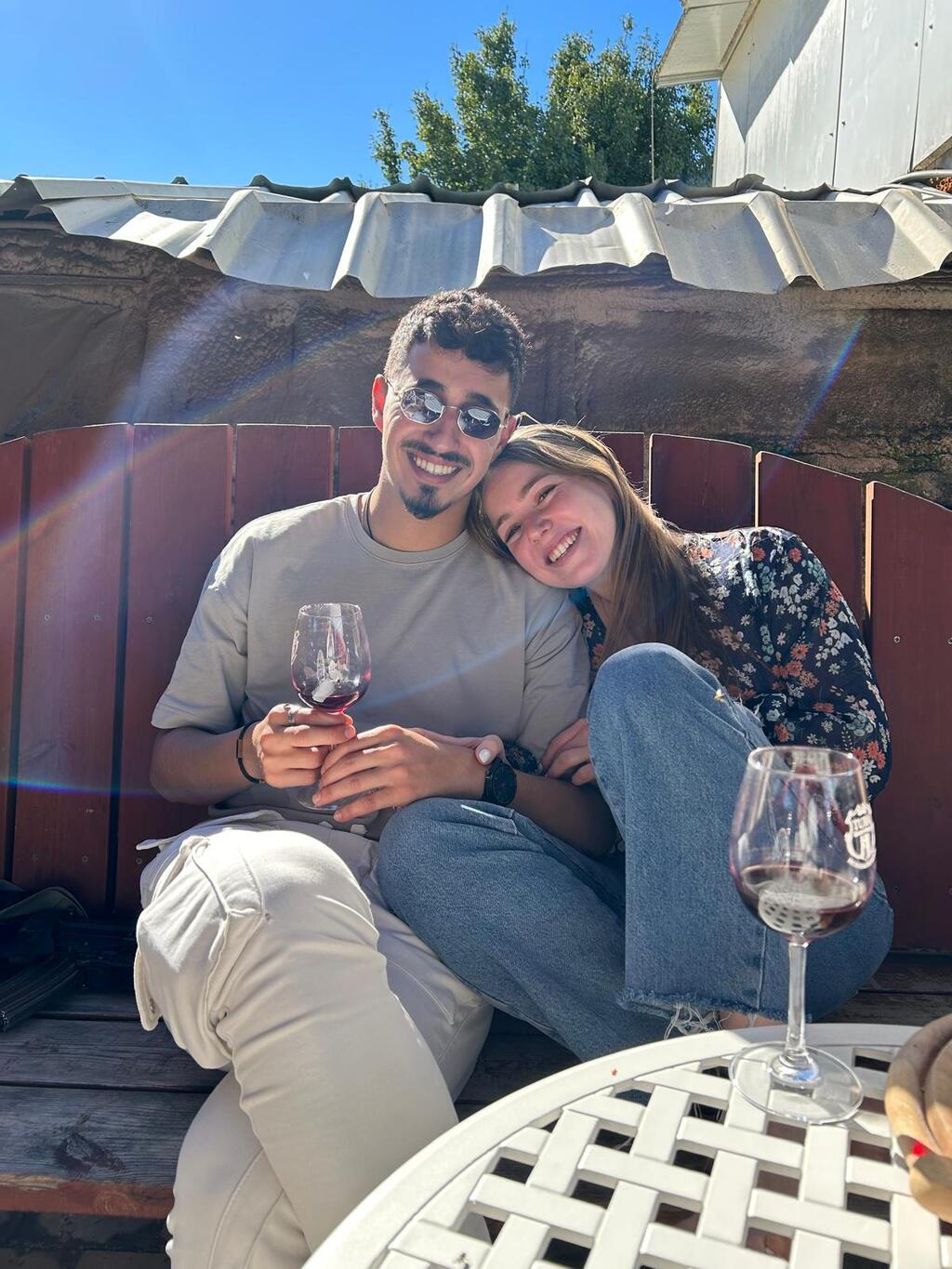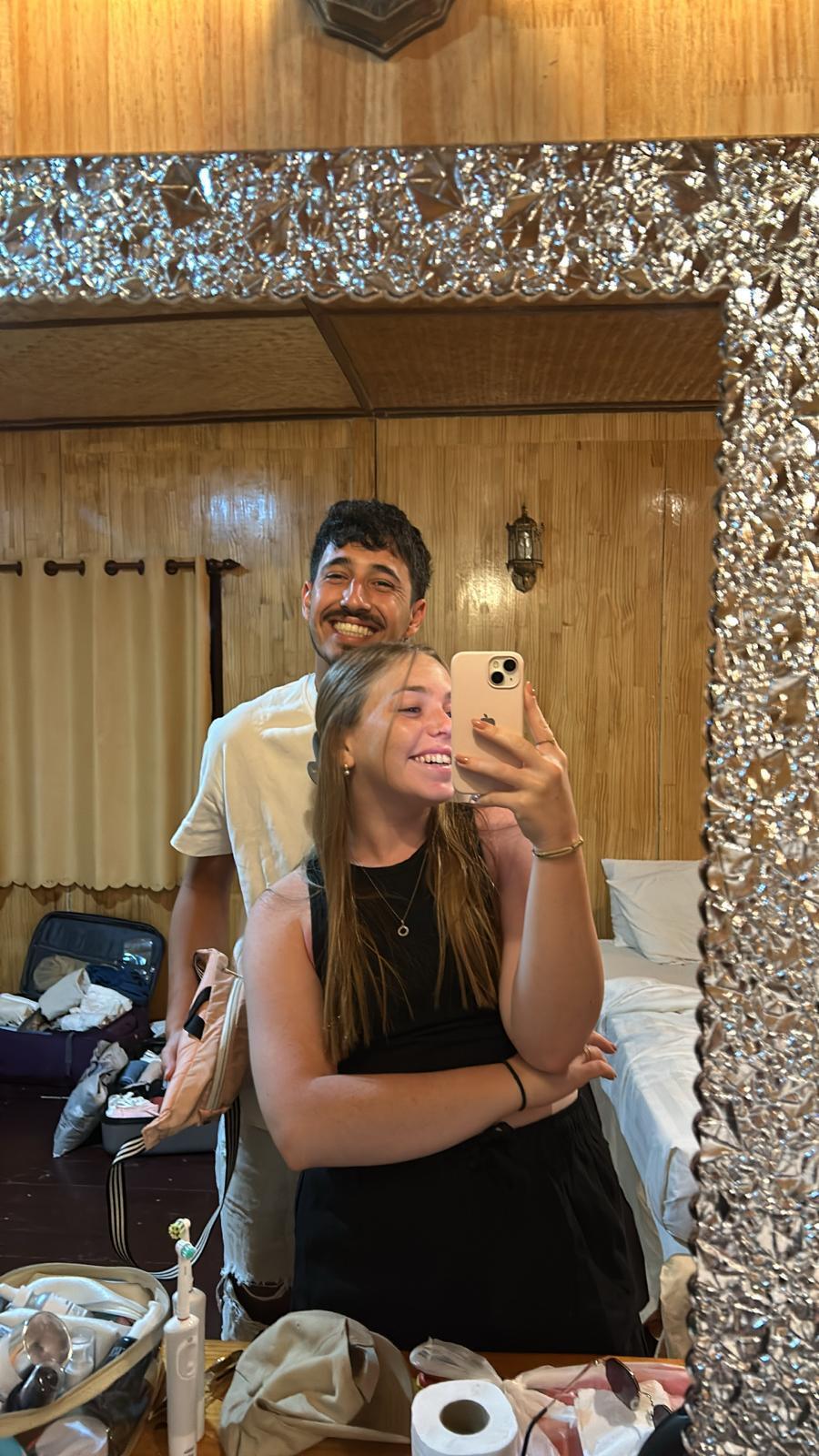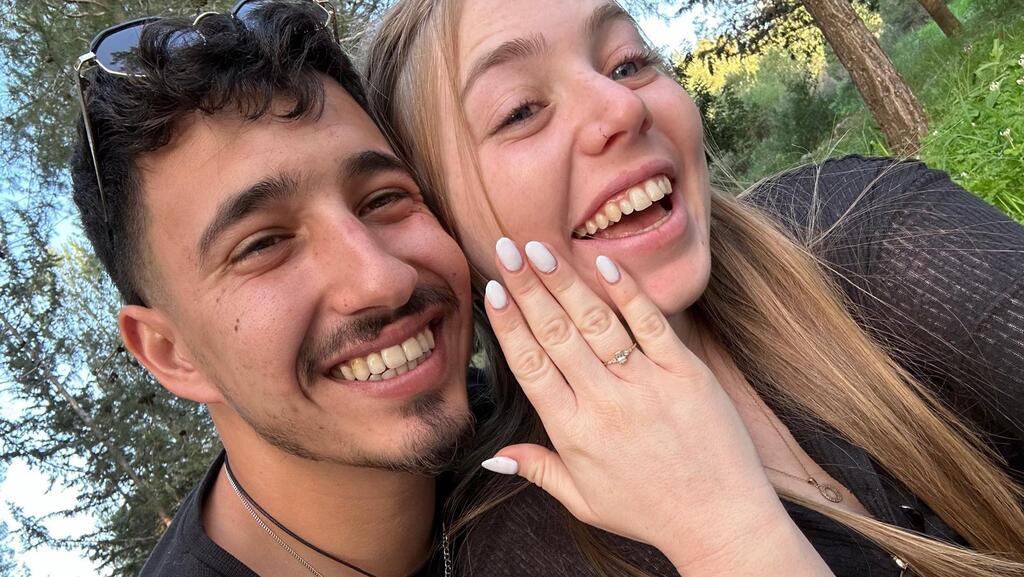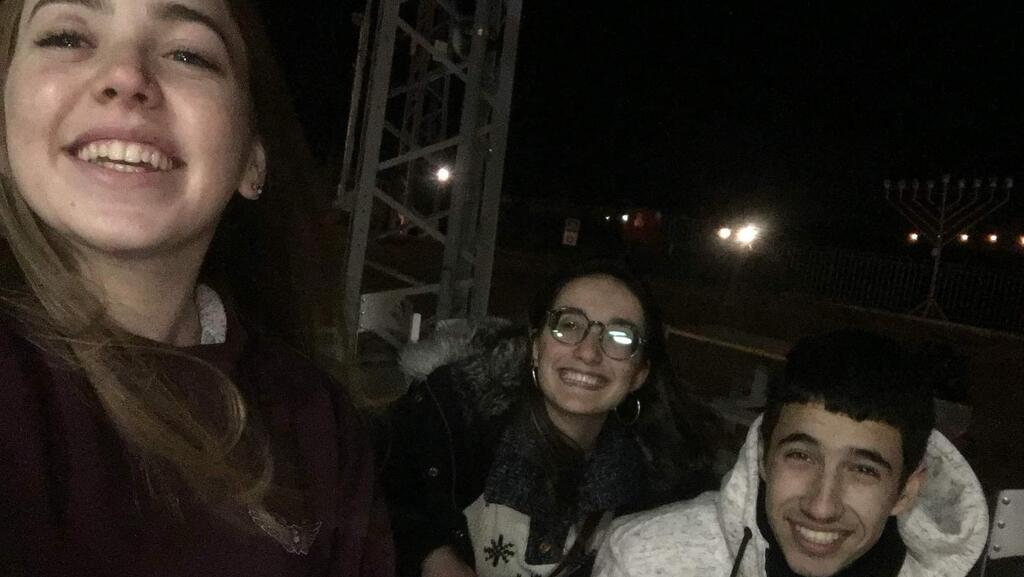"My and Moriah’s love is stronger than anything because we both come from the same place of pain, a place of sharing, where 'an outsider wouldn’t understand.' We both grew up as orphans. I think we wouldn't truly understand each other if she hadn't gone through what I did," says 23-year-old Harel Tils from Elkana. Harel met his partner, Moriah Feldman, at a camp for bereaved families' relatives organized by the Koby Mandell Foundation.
"I was almost 11 when a friend came to my house to collect wood for the traditional Lag B'Omer bonfire. He told me there were a lot of ambulances near my father's carpentry workshop. I tried to get in, but they stopped me and that's when I realized something happened.
“My father had pulled out a very smooth Formica wood panel and six panels fell on him, hitting his head. He lost consciousness and was hospitalized for three days before he passed away. My mother was eight months pregnant at the time and it was a huge shock. I'm the oldest of six siblings and we all felt confused and lost. A month after his death, my youngest brother was born and we had to navigate between two worlds: life and death."
That's awful. How did you cope with it?
"I didn't really process what had happened in the first year or two. There was a sort of denial in the air. The house was full of people who came to help, stay with us and somehow fill the void that had been created. Only in the third year after the loss, when I matured, did I understand the magnitude of the tragedy.”
“It shook me and the difficulty manifested outwardly in anger towards the world, especially my family. There were a lot of fights at home, and by ninth grade, I left for a boarding school because I wanted to get away. I went through three different boarding schools because I couldn't adjust to the structures and struggled with hearing the word 'no.' No one had ever told me 'no' before and my mother was even more afraid to refuse me after my father's death."
Moriah: "My mother died of pancreatic cancer when I was 14. The disease broke out during Hanukkah, and she passed away six months later. It was hard to deal with her passing both emotionally and practically because my father was a high-tech worker and wasn't home much. My mother essentially raised all of us, eight siblings. We had to restart and someone had to take care of the household and the kids, so my older sister, who was studying at university at the time, stepped in and managed the daily affairs.
"A year later, my father remarried, which was another difficulty in itself. I didn't take it well at all, but essentially, from the moment we left the hospital after my mother's death, I lived with death alongside life and didn't allow myself to fall into depression. There were, naturally, low points, but my family's support helped.
“Later, I also received support from the Koby Mandell Foundation which organized experiential camps for bereaved children during the summer and holidays. It was there that I met Harel."
"The kids you meet there become more than friends because they know everything about you. When everything is out in the open, it benefits you both as an individual and in relationships, whether friendly or romantic.
“There's no doubt this connection created a very strong and resilient bond between Moriah and me because we were very close friends for two years before we became a couple, so the entire relationship was deep and honest."
Harel: "I came to the foundation four years before Moriah. Someone told my mother about a summer and holiday camp that was a safe, supportive and experiential place for children from bereaved families. During the day, there are activities and attractions, and there's also a group session with a psychologist or emotional guide once a day that touches on loss, feelings and the challenges we're going through.”
"There's no doubt this connection after meeting at the camp created a very strong and resilient bond between Moriah and me because we were very close friends for two years before we became a couple, so the entire relationship was deep and honest."
When did your friendship turn romantic?
Moriah: "Actually, I had my eye on him from the start. I liked him since that Passover when he joined my group at the camp when I saw him for the first time. About a year and a half later, I told our late friend Tiferet Lapidot, who was a volunteer counselor at the foundation, that I was interested in Harel and thought he was cute. In fact, everyone in our group knew I had feelings for Harel—except for him. After he found out, it took some time before we became an official couple."
Harel: "I always thought Moriah was cute but I didn't see her in a romantic way. Honestly, I prayed a lot for a relationship but didn't think I'd find one at camp. Also, Moriah had a boyfriend when we first met. After about two years, when we were 17, I realized she was interested in me. I was really surprised, and from that moment, I started seeing her differently — as a woman, not just a friend from the foundation.”
'The war made us realize that we should hold onto the good we have'
On October 7, after news of the disaster broke, Harel was called up for reserves exactly one year after his discharge and the two got engaged last March. "The war didn't bring about the wedding, but there's no doubt it strengthened our relationship," Moriah says. "At the beginning of the war, when Harel first joined the reserves, I moved in with my dad for three months, then returned to our apartment and lived alone for three months.
"I missed Harel and his presence a lot. I was used to sharing a routine with him. I even missed just telling him what I did that day and what I ate. Every time he called from the reserves, I’d step aside and get excited all over again trying to make the short conversation last as long as possible. The distance and longing reignited sparks and butterflies."
Harel: "I didn’t propose because of the war, but it definitely influenced the timing. It gave us perspective and made us realize that we should hold onto the good we have. The war pushed us to appreciate what we have.”
"During my reserve duty, the time I had with Moriah was limited. This created a situation where not only did I miss her, but I also appreciated our 'togetherness.’ Knowing that someone’s waiting for you at home means everything to me. Unfortunately, there were also good friends who were killed in the war, like our mutual friend from the Koby Mandell Foundation Tiferet Lapidot who brought us together. Tiferet was murdered at the Nova Music Festival.'"
How did you cope when loss suddenly became something you shared?
Moriah: "While Harel was waiting to be called up north for reserve duty, he was looking online because everyone was posting pictures of the missing. Suddenly, he came across a picture of Tiferet and we were both shocked. She was a very close friend of ours, and we used to meet with her at least once or twice a week for years. She was traveling abroad and then returned to Israel for the holidays when the worst happened.
"When she was still considered missing, we tried to help find her and published posts on social media as well. A week later we were notified that she was no longer alive. She was among the last to be confirmed dead. Harel didn’t know until he called me by chance and I told him.”
Harel: "My heart broke when Moriah told me, and I also thanked God that she wasn’t kidnapped at that moment. We both cried together on the phone. It was a different kind of loss because it wasn’t a personal loss like we experienced as kids and it wasn’t even a shared loss between the two of us — it was a loss for all of Israel.
"We connected to the collective pain and that bond was comforting. I think it doesn’t matter how many people you’ve lost before, the pain is still very deep, especially when it’s the loss of someone like Tiferet, who was a good friend and almost like family over the years,” he recounted.
“Despite the distance, Moriah and I visited her grave after our engagement to share the good news. I believe she’ll be present at the wedding, God willing. We decided that we’d mention her at our wedding on the day it happened."
How do you walk down the aisle when such important people in your life are gone?
Harel: "A wedding where one set of parents is present and the other side only has one parent is already awkward and sad because someone is missing. For us, both are missing. It’s hard and sad to plan a wedding knowing that you’re organizing the whole event and only four people will be standing under the chuppah instead of six.”
“When a couple usually goes for tastings at the venue, both parents from each side are usually there — but we don’t have that. The loss accompanies us at every step on the way to the wedding,” he said.
"Unfortunately, Tiferet and our other friends will also be missed. It’s sad, but we’re ready to embrace this sadness when it comes together with joy. There will be other people who’ll bring us happiness. There’s no doubt it will be an emotional and special wedding. This is our life and we’ll make sure to remember and honor those who are no longer with us. I know they’ll be with us in spirit."






